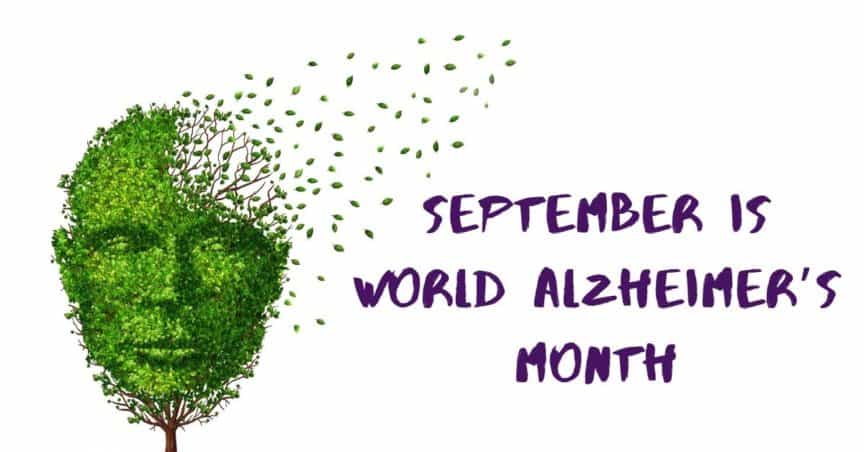- Navigating Concerts When Wearing Hearing Aids - April 28, 2024
- How to Care for Infants With Hearing Loss - April 15, 2024
- Hearing Aid Tips for Runners - April 5, 2024
This month, we look at Alzheimer’s disease, a cognitive disorder that affects many individuals but has origins that remain a mystery. World Alzheimer’s Month is a global campaign held by Alzheimer’s Disease International (ADI) every September to create awareness and combat the taboos around dementia. It has been an annual event since 2012, with the most important day falling on September 21st.
To mark this month of awareness, it is essential to understand dementia in detail, and look at an often-overlooked way to help prevent the disease from developing.
All about Alzheimer’s Disease
Dementia is a blanket term for progressive degenerative brain syndromes that influence memory recall, thinking, behavior and feelings. Alzheimer’s disease is the most prevalent form of dementia, impacting up to 90% of individuals living with the condition.
There are three main stages of Alzheimer’s disease. Let’s look at each one in detail.
- Early Stage (Mild)
Even when the early signs of the disease occur, an individual can live independently with mild Alzheimer’s disease. Working, driving, and social interaction can all be achieved during this stage, even though the individual with Alzheimer’s will start to forget words and forget where they put everyday items such as keys more frequently. It can be a challenge to remember people’s names, and the ability to plan may also start to suffer at this point.
2. Middle Stage (Moderate)
This phase is often the longest in a person’s journey with Alzheimer’s disease, and an individual can have these symptoms for many years. These symptoms will necessitate more care for the Alzheimer’s patient, and it is possible that the individual will no longer be able to live by themselves.
Those who are in this stage often find it tough to find the right words and labels, and get angry at their inability to do so. This frustration can lead to social withdrawal, especially in complex social situations where memory and cognition are tested. The person affected may also experience paranoia, anxiety, or the feeling that they can’t trust other people.
Moderate Alzheimer’s involves forgetting what has happened recently, as well as neglecting daily habits like showering or other personal grooming. Individuals may become confused with time or have difficulty sleeping.
3. Late Stage (Severe)
Once an individual enters the late phase of Alzheimer’s, he or she will need almost continuous care. The failure to comprehend the surrounding environment or talk to other people means that the individual is unable to look after themselves.
Single words or phrases, but rarely whole sentences or more complicated ideas. They will not be able to comprehend things which happened in the past or even the present.
It becomes tough to walk, sit, or even consume food and drink. Sufferers may find it hard to control their bowel or bladder movements, and Alzheimer’s sufferers at the early stage are especially prone to pneumonia.
Can we prevent Alzheimer’s disease and other forms of Dementia?
The causes of Alzheimer’s disease are not sufficiently understood to recommend any special preventive measures. But even without any particular preventive action, a healthy lifestyle and physical, mental or social activity is recommended.
Although no specific advice is recommended, in recent years a surprising connection has been discovered between hearing loss and dementia. About 25% of those between the ages of 65 and 74 and 50% for those 75 and older have a hearing loss. And hearing loss has been connected to reduced mental and social activity in the individual affected. By treating our hearing loss then, we could be taking steps to reduce the cognitive decline associated with dementia.
Audiology Concepts
Hearing loss can be treated through assistive technology, which reduces the cognitive load that the brain needs to compile parts of sound into meaningful speech. Aside from the possible benefits to preventing Alzheimer’s disease, treating hearing loss also has social, financial and general health benefits too.
The first stage in the process of treating hearing loss is a hearing test. For more information about hearing tests and treatments, contact us for a consultation today!

